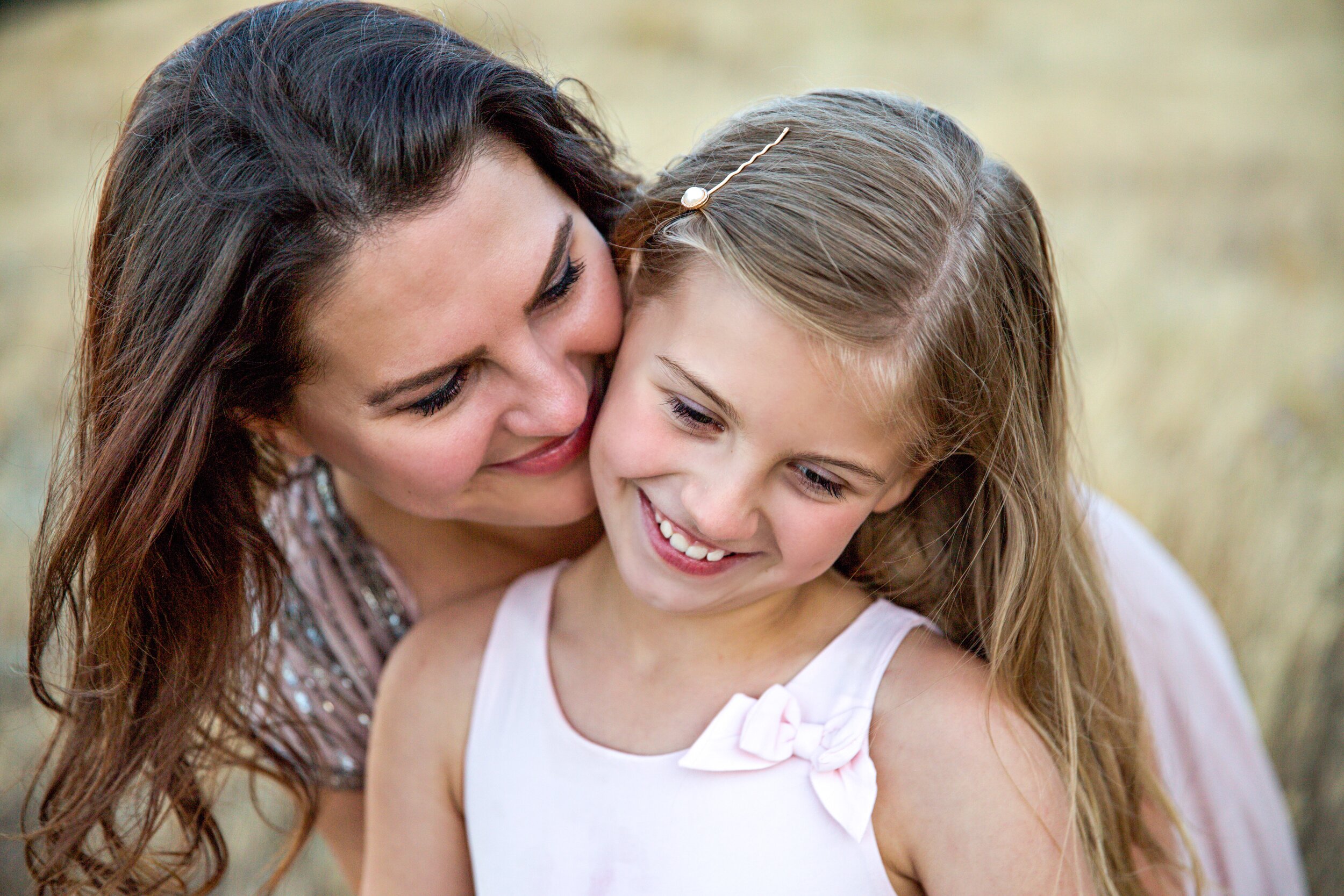Your heart swells as your little one blurts out “Mama” for the first time.
You burst with anger as your teen talks back for the 15th time today.
Anticipation of talking to your child’s teacher after “the incident” has your stomach doing flip flops.
Frustration consumes you as you find food wrappers and dirty dishes all over the family room.
Maybe you are experiencing a bout of loneliness as you long just to have an adult conversation.
As mothers and caretakers, we are asked to pull from our emotional banks all day long - believe me, as a mother of seven, I understand completely.
If you picture your emotions as a piggy bank, you are constantly making withdrawals. Have you ever considered that you need to replenish the bank before your emotional stash is drained or depleted? An empty bank can lead to burnout, exhaustion and hopelessness. Not only does this have a toll on our relationships and mental health, but it can take a physical toll as well.
Important Note: If you are feeling hopeless for days or can’t seem to function in your daily roles, you may need some professional emotional support. Ask a friend, your local church or mental health provider for recommendations. You can also look here for recommendations from Psychology Today.
Emotional fatigue is explained clearly by Saundra Dalton-Smith, MD, in her book, Sacred Rest,
We each have an internal capacity to manage emotions. We pour out of this space as we offer sympathy to a friend who just lost her husband, console a tearful toddler in our arms, or encourage our coworker on a job well done. Each interaction is giving a bit of ourselves. When our emotional withdrawals exceed our emotional capacity, we will experience emotional fatigue.
If we learn to recognize and monitor our emotional fatigue levels, we can start to seek out emotional rest before we get to the point of exhaustion.
Getting the emotional rest you need is the topic of our next stop on our journey of rest.
What Is Our Emotional Goal?
Having emotions is what makes us human. Emotions connect us. Protect us. And makes us have a sense of self. “Our emotions often dictate our choices and decisions,” says Suzie Lawyer, a licensed professional counselor. “When emotions are healthy our decisions are more sound and thought through. When our emotions are out of control, we often make decisions based on a reaction instead of careful thought. Rest gives us the opportunity to process our emotions and begin to regulate them so that our default responses are ones that will have a positive outcome.”
The goal is not to avoid emotions but to give our bodies and minds the proper rest we need so that we can experience our emotions in a healthy way and function at our optimum level.
Keeping ourselves functioning and running smoothly is an important goal. But did you know that our children’s brains are actually physically changed as a result of what they experience in relationship with us as parents?
“Thriving is an interconnected experience.”
In the book, The Whole Brain Child, Dan Siegel says about relationships, “we soak up like a sponge what we see in the behaviors, intentions, and emotions of someone else.” This will come up again and again in all the rest series - as parents, we are not only seeking rest to keep ourselves healthy, we are modeling behaviors so our children can grow and develop into their own best mental, physical and spiritual selves.
Our goal then, is to be our best emotional selves so we can help our kids be their best emotional selves. Thriving is an interconnected experience.
How Do You Know If You Need Emotional Rest?
How can we be aware of our emotional rest needs? Let’s look at some signs of emotional fatigue.
You lack the ability to feel emotions as you once did or you feel emotionally numb
You continually isolate yourself from others
You often focus only on your failures and flaws
You feel self-doubt and insecurity regularly, which hinders your tendency to try new things
You constantly feel the need to apologize or explain yourself in order to compensate for who you are
You get disappointed and angry with yourself for small mistakes
You become engulfed in thoughts of worry or anxiety often
You are easily distracted and struggle to focus
You lash out at your children, your spouse and others in your life
If any of these sound familiar, you could probably use some emotional rest.
So, What Can You Do to Experience Emotional Rest?
The term “emotional rest” can feel wishy-washy and far off, but there are many tangible ways to replenish your emotional tank. It’s important to take time regularly to tend to your emotions so that you don’t reach complete emotional exhaustion.
Here are a few ways to find emotional rest today:
Take Emotional Inventory - are there events or people in your life who drain you emotionally? You may not be able to completely eliminate them, but you can minimize these emotional stressors in your life.
Stop Comparing Yourself - Seriously. Changing yourself to fit in or trying to act in a certain way is extremely emotionally taxing. Instead, just be yourself! Embrace who you are. Write a list of things you are good at it - nothing is too small to add to the list. If you need to stay away from social media for awhile, do it! You got this!
Take the Risk of Vulnerability - I won’t lie to you and tell you this works every time. Vulnerability is a risk. However, if you are willing to take the risk to open up to a trusted friend or family member, you are taking a step towards an emotionally restful connection.
Take 15 minutes for yourself - As caregivers we are almost always giving to others. Make time for yourself. Set a timer. Schedule it in. Get up before everyone else. Let your spouse take over when they get home. Trade off with a friend. Having time to yourself and not being responsible for anyone else can go a long way towards restoration.
Exercise - Even just 15 minutes of exercise can help lower the stress hormones in your body and restore emotional balance.
Okay, so maybe you want to explore emotional rest in a deeper capacity. Here are a few ways to find emotional rest if you feel you need a bit more:
Meet with a Counselor or Therapist - Seeking counseling is a healthy way to help you understand and monitor your emotions well. Think of this as training for your emotions. You have to teach yourself how to manage your emotions well and a therapist can help with that. This is not a sign of weakness, but is a step towards health.
Start an Emotions Journal - This is a great way to reflect on your current emotions and learn to monitor them well. There are lots of great resources out there for how to create an emotions journal. Essentially, you start with some prompts and just start writing. This article is a great resource for getting started . Journaling is a proven way to reduce stress and negative emotions.
We often forget to monitor our emotions until we reach complete emotional exhaustion. If we learn to see the signs of emotional fatigue before we reach this point, we can start to find the daily emotional rest that we need. Take care of yourself so you can take care of others.
Questions about emotional rest? Feel free to email me or make a comment on the Skipping Stones Facebook page.




